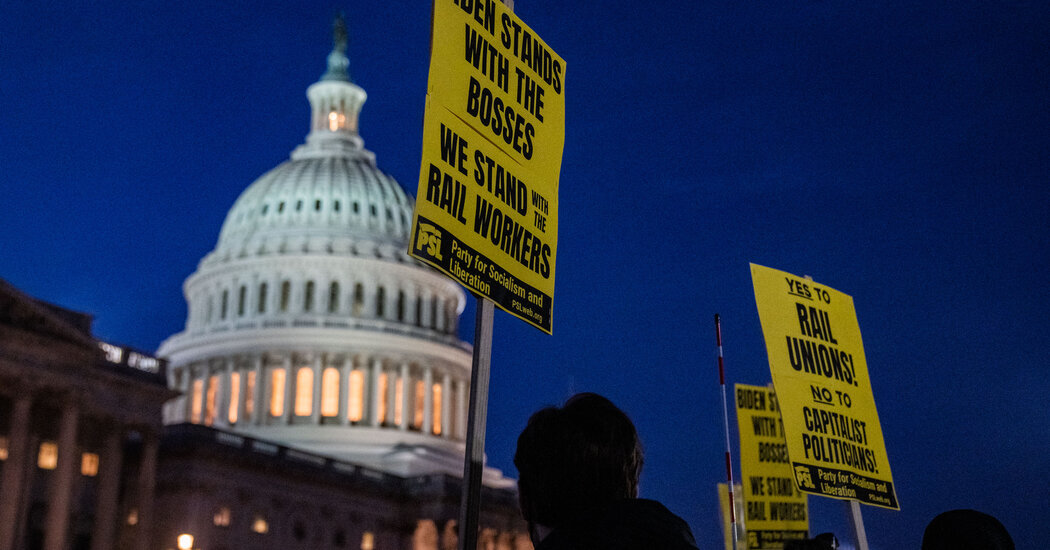The final vote reflected the unusual coalition brought together in opposition to the imposition of the agreement. Multiple liberal senators, including Senator Elizabeth Warren of Massachusetts, joined some of the most conservative Republicans, such as Senator Josh Hawley of Missouri, in voting “no.”
“If DC Republicans want to be a working-class party, they might want to do something for workers,” Mr. Hawley wrote. on Twitter. He was one of the conservative senators who supported the paid leave measure but opposed the imposition of the agreement without it.
To allay concerns from both sides and speed up the passage of the measure through the Senate, leaders agreed to first consider the GOP proposal for a cooling-off period and the House-passed proposal to add paid leave. to take.
“Less than 36 hours ago, we were asked to decide on complicated, important issues without due deliberation,” said Senator Dan Sullivan, Republican of Alaska, who sponsored the extension of the deadline. He said his move “would give negotiators more time to come to an agreement and that Congress will not become the last resort in this kind of negotiation.”
Other senators, including some Republicans, said the threat of damage to the country’s economy at a time when inflation remains high drove their votes to implement the preliminary agreement.
“While this position is undesirable, Congress must act,” Senators Cynthia Lummis of Wyoming and Kevin Cramer of North Dakota, both Republicans, wrote in a joint letter to their colleagues. “Implementing an agreement that supports roughly half of union workers, along with all their leaders, is the most responsible way forward.”
But Ms. Lummis and Mr. Cramer, like the majority of Republicans, opposed the addition of the paid leave proposal, saying that Congress should abide by the terms of the preliminary agreement.

